15 years one-stop China custom CNC machining parts factory

Hey there I’m VMT Sam!
With 25 years of CNC machining experience we are committed to helping clients overcome 10000 complex part-processing challenges all to contribute to a better life through intelligent manufacturing. Contact us now
 274 |
Published by VMT at Jun 11 2024
274 |
Published by VMT at Jun 11 2024
Introduction:
As a vital sector of modern manufacturing, the automotive industry heavily relies on the quality and performance of materials utilized in its products. Metal materials are widely applied in automobile manufacturing due to their exceptional physical and chemical properties. This article delves into the types of metal materials used in the automotive industry and their applications in CNC prototyping machining, aiming to provide valuable insights for CNC machining factories.

Types of Metal Materials Used in the Automotive Industry:
Aluminum:
Aluminum, known for its lightweight, corrosion resistance, and ease of processing, finds extensive applications in the automotive industry. Aluminum alloys possess low density and excellent thermal conductivity, which can reduce vehicle weight and enhance fuel efficiency. Additionally, aluminum alloys exhibit good ductility and weldability, making them suitable for various complex component machining.
Applications: Body panels, engine components, and wheels.
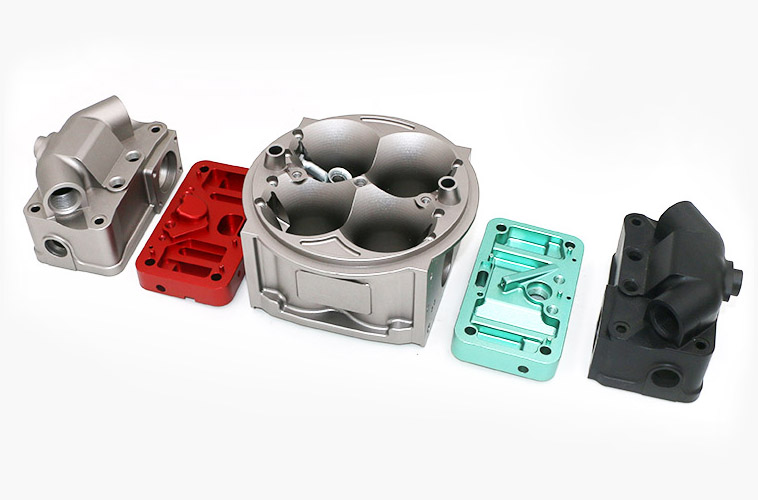
Stainless Steel:
Stainless steel, renowned for its excellent corrosion resistance, is commonly used in the automotive industry for manufacturing exhaust systems, fuel systems, and decorative components. With high strength, toughness, and good machinability, stainless steel meets the stringent material performance requirements in automotive manufacturing.
Applications: Exhaust systems, fuel systems, decorative components, and certain structural parts.
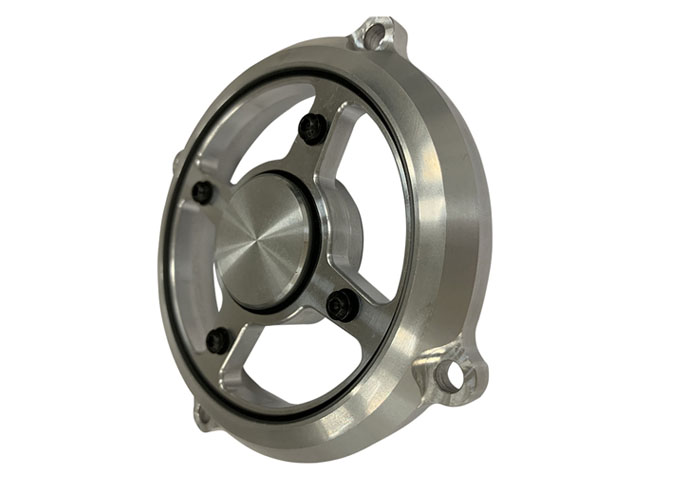
Iron:
Iron is one of the commonly used metal materials in automobile manufacturing, primarily employed for producing body structural parts and engine components. Pure iron possesses excellent electrical conductivity, thermal conductivity, and malleability but relatively low strength. Hence, alloying elements are often added to enhance the strength and corrosion resistance of iron in practical applications.
Applications: Body structural parts, engine cylinder blocks, transmissions, and some suspension components.
Titanium Alloy:
Titanium alloy, characterized by high strength, lightweight, and corrosion resistance, is mainly used in the automotive industry for manufacturing high-performance engine components and chassis structural parts. While exhibiting outstanding comprehensive properties, titanium alloy comes with higher costs, necessitating careful considerations based on specific requirements.
Applications: Engine valves, chassis structural components, and suspension systems.
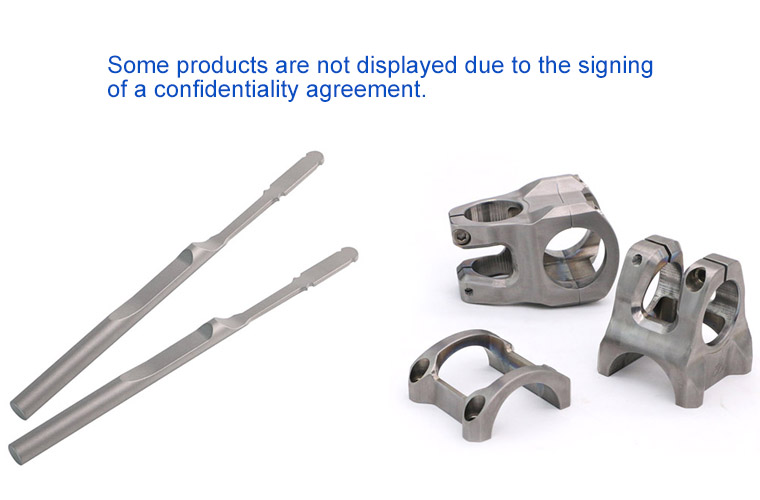
Steel:
Steel stands as one of the most widely used metal materials in the automotive industry, with various types including carbon steel, alloy steel, etc. Steel boasts high strength, toughness, and wear resistance, making it suitable for manufacturing diverse components. Moreover, steel demonstrates excellent machinability, meeting the high machining performance requirements in automotive manufacturing.
Applications: Vehicle frames, safety components, and mechanical parts.
Why Should We Use Metal Materials Used in The Automotive Industry?
The reason why metal materials used in the automotive industry are important is that they can meet the high requirements of automobile manufacturing for material performance. These metal materials have excellent physical and chemical properties, such as strength, toughness, corrosion resistance, etc., which can ensure that the car can maintain stable performance under various complex working conditions. In addition, these materials also have good processing properties, which can meet the requirements of automobile manufacturing for the shape, size and precision of parts. The choice of metal materials depends on the required strength, weight, corrosion resistance and cost.

Surface Treatment of Automotive Metal CNC Machining Parts
Aluminum
Aluminum can be anodized, sprayed, electroplated and other surface treatments to improve its corrosion resistance and decorativeness. However, aluminum is not resistant to corrosion by strong acids and alkalis, so it is necessary to pay attention to the selection of appropriate processes and parameters when performing surface treatment.
Stainless steel
Stainless steel can be polished, sandblasted, electroplated and other surface treatments to improve its surface finish and corrosion resistance. However, the surface treatment of stainless steel is more difficult and requires special processes and equipment.
Steel
Steel can be phosphated, galvanized, chrome-plated and other surface treatments to improve its corrosion resistance and wear resistance. The surface treatment process of steel is relatively mature, and appropriate processes and parameters can be selected according to specific needs.
Iron
Iron can be treated with spraying, electroplating, oxidation and other surface treatments to improve its surface performance and decorativeness. However, the corrosion resistance of iron is poor, and corresponding protective measures need to be taken.
Titanium
Titanium can be treated with anodizing, spraying, chemical plating and other surface treatments to improve its corrosion resistance and wear resistance. However, the surface treatment process of titanium is relatively complicated, and the process parameters need to be strictly controlled.
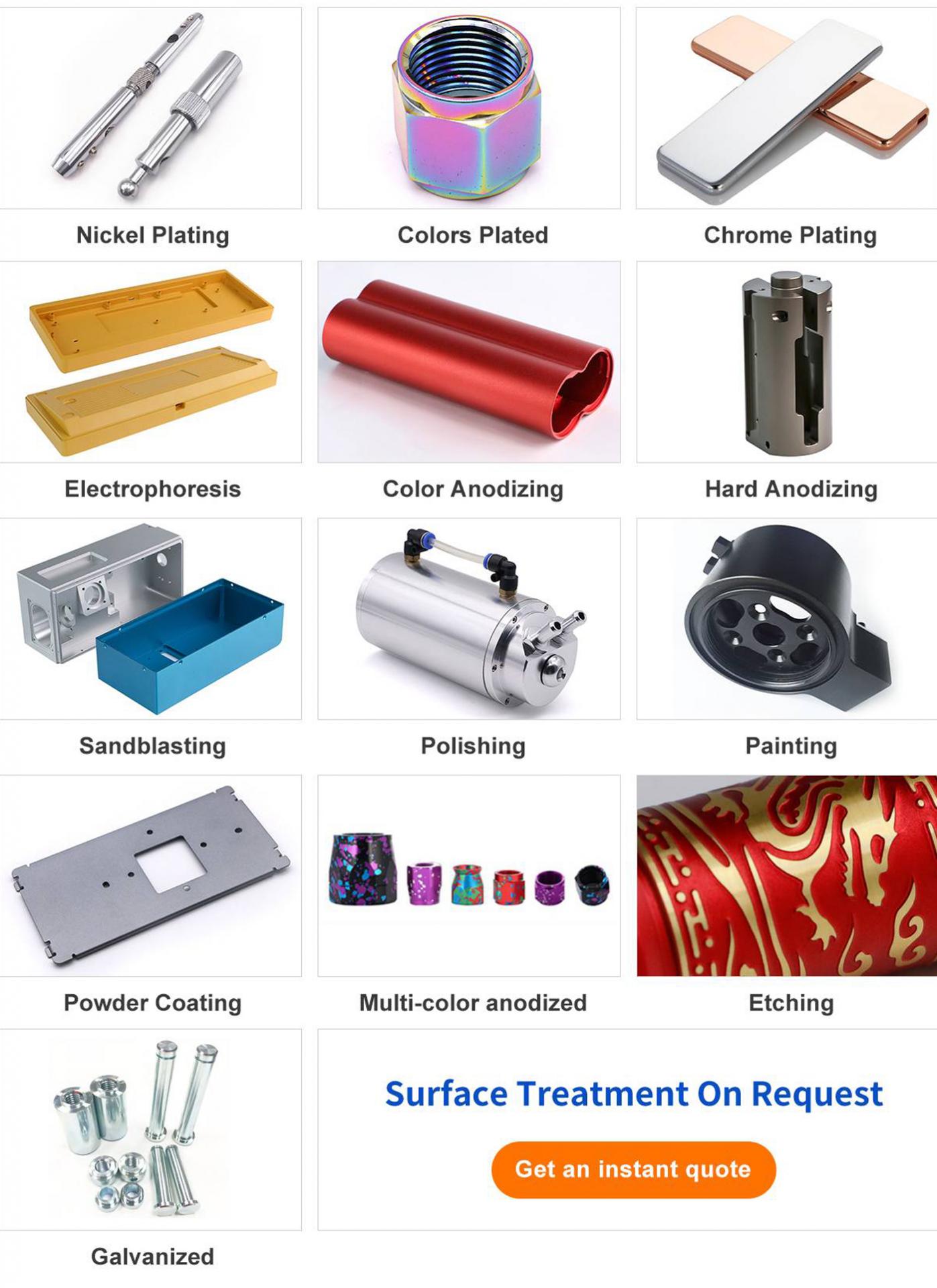
Choose the Right Metal Material to Make the Best Automotive CNC Parts
When selecting metal materials for automotive CNC parts, it is necessary to make comprehensive considerations based on the specific use, working conditions and performance requirements of the parts. For example, for parts that need to withstand large loads and impacts, high-strength and high-toughness metal materials can be selected; for parts that need to withstand corrosive environments, metal materials with excellent corrosion resistance can be selected. At the same time, factors such as material processing performance and cost need to be considered to ensure that the quality and performance of parts are in the best state.
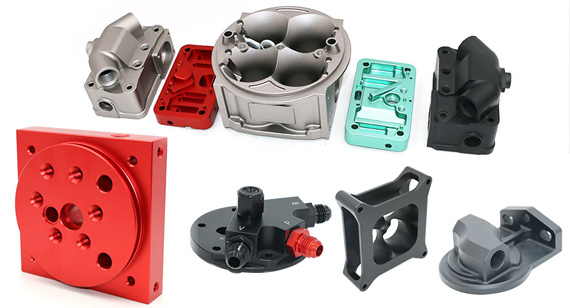
Conclusion:
The automotive industry employs a diverse range of metal materials, each possessing unique physical and chemical properties. Selecting appropriate metal materials is crucial for manufacturing high-quality, high-performance CNC automotive machining components. In practical applications, comprehensive considerations based on component usage, operating conditions, material properties, machining performance, and cost are essential for optimal material selection.
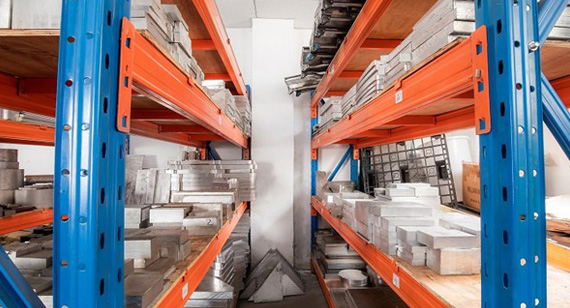
Frequently Asked Questions:
Which is more suitable for application in the automotive industry, aluminum or stainless steel?
Both aluminum and stainless steel are commonly used metal materials in the automotive industry, each with its pros and cons. Aluminum offers low density and excellent thermal conductivity, contributing to weight reduction and fuel efficiency, while stainless steel provides exceptional corrosion resistance, suitable for manufacturing exhaust systems, fuel systems, etc. Therefore, the selection between the two depends on specific requirements.
What is the best manufacturing method for automotive metal components?
The best manufacturing method for automotive metal components depends on the specific component type and performance requirements. In CNC machining factories, common manufacturing methods include CNC machining, stamping, casting, etc. Each method has its unique advantages and applicable scope, requiring careful selection based on specific circumstances.
How to choose the appropriate metal material?
When selecting the appropriate metal material, several factors need to be considered: Firstly, the component's usage and operating conditions, including stress conditions and working environments. Secondly, the physical and chemical properties of the material, such as strength, toughness, and corrosion resistance. Lastly, factors such as material machinability and cost should also be taken into account. A comprehensive evaluation of these factors will lead to the selection of the most suitable metal material.
Ready To Start Your Next Project?
Get Instant Quote

Request a Free Quote
Send us a message if you have any questions or request a quote. We will get back to you ASAP!